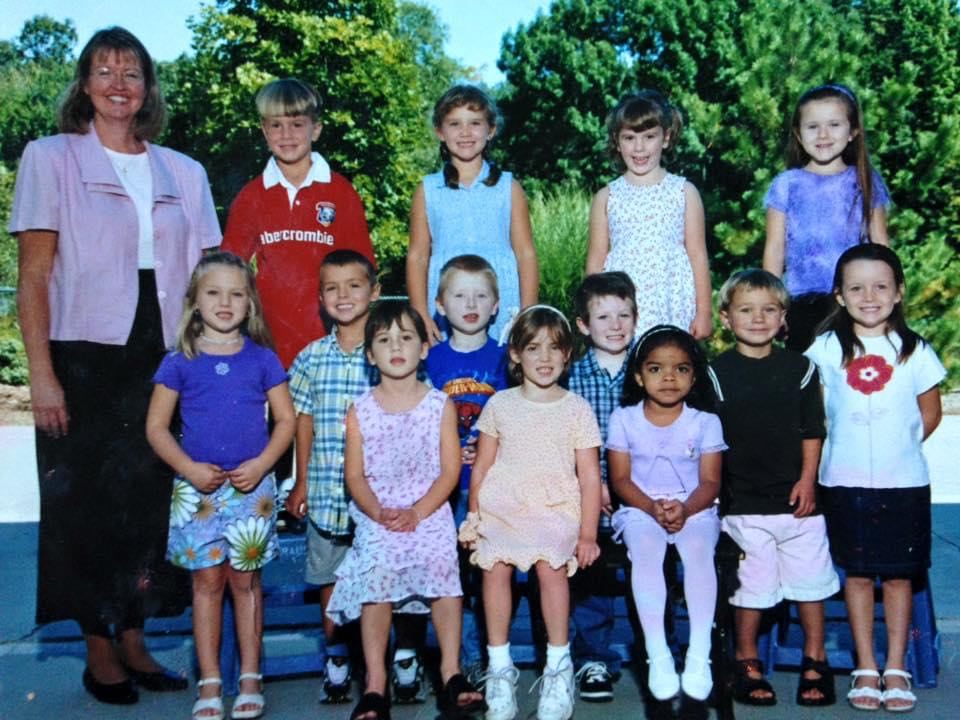24/7 Hotlines: Call or text 988 or text 741741
Black History Month is important to me. Being black is part of who I am, it’s not something that’s going away. I’m proud to be black. Growing up, my family never really talked about things like that. I didn’t even learn anything about it until I was old enough to go to school.
For those of you who don’t know me, I grew up in Salem, CT. The easiest way to describe Salem to you is by calling it a farm town because that’s what it was, at least to me. One of the other things that is most noticeable to people about Salem is that the population is mostly white. Now, I’m not saying that’s necessarily a bad thing, but can you imagine growing up in a place where there was nobody that looked like you?

The only other people of color I knew in town were my own relatives and a boy named Michael. I was young when we first moved to Salem, so it never really seemed like a big deal to me. When I got to middle school, I began to ask questions. Why were there no other kids that looked like me? I didn’t really have the answer for that, I still don’t. I didn’t know what it really meant to be black or white but I knew I had to “act white” to fit in.
There were so many things I did in middle school that I wish I hadn’t. I wish I had just been myself and loved me for who I was. I straightened my hair everyday. Honestly, I even tried to dress like the girls I went to school with. I thought it might make them like me more but that was never the case. Still, I continued to straighten my hair and wear clothes I didn’t like just to fit in.
Being black in a mostly white town came with more than just physical identity issues. Middle school was around when my parents split up. This now unfortunately put me in the “all black dads leave” category, and I hated it. Some of the kids in my grade at the time actually gave me a really hard time about it. I was miserable. Being black came with so many stereotypes like that. Kids asked me all the time if I liked fried chicken or Kool-Aid because that’s what black people like, according to them. I did love those things but not because of my skin color, just because I liked them.
Growing up in a mostly white town really made me hate the black part of my identity. It made me feel outcasted and different. I wish my parents had taught me to love all of myself. If only they had taught me more about black history and what it meant to be black. That those stereotypes aren’t who I am. I am proud to be black and I am even more proud of the history that comes with it.
Martin Luther King Jr. said, “I have a dream that my four little children will one day live in a nation where they will not be judged by the color of their skin but by the content of their character.” and I have that same dream for all the colored children and young adults in this world.
Read The New York Times’ article Teachers Tackle Black History Month, Under New Restrictions, it’s a really interesting read!
Read The ‘Other’ Aspect of Black History Month here on CTSupportGroup.org!

© 2025 TurningPointCT.org. All Rights Reserved.
This story is a common one. I am a somatic healer and life coach who also happens to be black. Interpersonal, everyday racism in America comes with extreme forms of gaslighting at best and outright physical abuse at worst, and this doesn’t include the systemic racism or the “everyday” ways that black people are automatically overlooked, discredited, or discriminated against. It’s a lot to manage for anybody, and harder if you have no social support. When interracial interpersonal interactions don’t go as smoothly as expected, instead of noticing the violence, aggression, passive aggression, and gaslighting directed towards black people in everyday interracial interactions, others are often quick to blame the black person and they ignore and often defend and excuse the violence, aggression, passive aggression, and gaslighting, etc. perpetrated by the white person(s) who participated in the interaction. I am glad that the young woman who authored this story decided to learn more about black history on her own. Black history contains so many heroes and brilliant people and acts of love and support, and this young woman is never going to hear about the brilliance of black history and black people from the white community in her town. Kudos to this young woman for having the wisdom and the strength to find ways to learn about herself and her history!😊